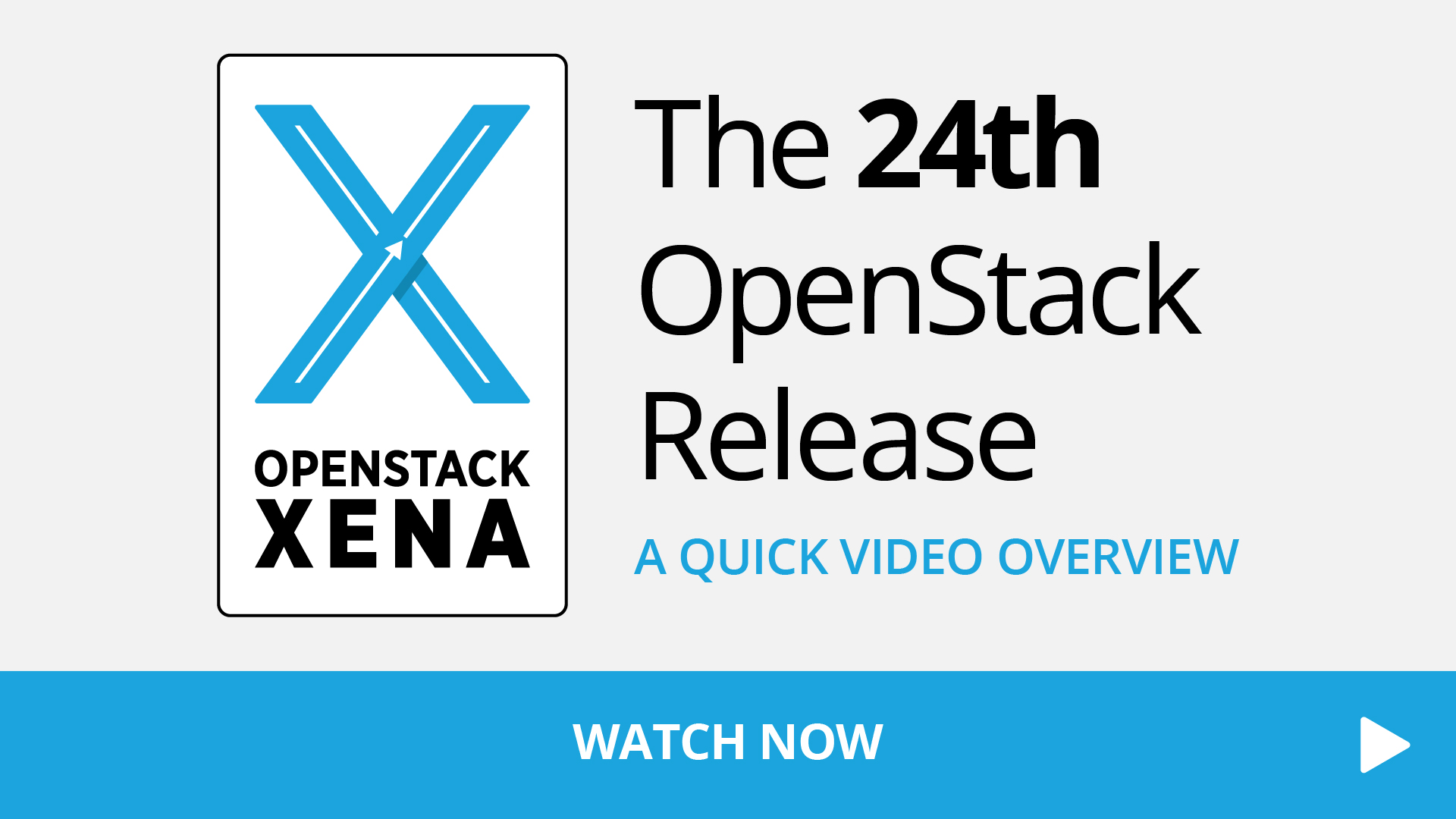
The OpenStack community today released Xena, the 24th version of the most widely deployed open source cloud infrastructure software. Highlights of the Xena release include support for new hardware features, improved integration among components, and reduction of technical debt to maintain OpenStack’s stable and reliable core.
OpenStack is one of the most active open source projects in the world, supported by a vibrant and engaged community of developers globally. Over the span of just 25 weeks, almost 15,000 changes authored by over 680 contributors from over 125 different organizations were included in the Xena release.
This release comes at a time when the OpenStack project is deployed in production more widely than ever. Over 100 new OpenStack clouds have been built in the past 18 months, growing the total number of cores under OpenStack management to more than 25,000,000 cores. Organizations with deployments ranging from hundreds of cores to six million cores have logged significant growth according to the 2021 OpenStack User Survey. The User Survey report will be made available ahead of the OpenInfra Live: Keynotes, November 17-18, where several of these production users will be sharing the details of their growing OpenStack use cases.
Xena delivers numerous other examples of integration among projects, including the following:
Blazar has added OpenStackClient support to python-blazarclient, allowing users to interact with Blazar using OpenStack reservation commands, which provides users with a similar command-line interface as when interacting with other OpenStack projects.
Glance has added support for unified quotas using Keystone limits.
OpenStack-Ansible, the most popular deployment tool (selected by 47% of OpenStack User Survey respondents), has added a role for Freezer deployment.
Manila has significantly increased feature parity between the manila-client shell utility and the unified OpenStackClient, enhancing usability of the Shared File Systems API.
Support for advanced hardware features; Nova’s support for SmartNICs leads a list of examples, including the following:
In Cinder, many current backend storage drivers now have added support for features exceeding the required driver functions, such as multiattach and the ability to take advantage of backend optimizations.
Ironic delivers substantial API improvements in node list retrieval performance, support for boot_mode and secure_boot state visibility on a bare metal node, as well as the capability to set these states as API actions.
Production usage of Kolla among OpenStack User Survey respondents has increased from 17% in 2020 to 28% in 2021. In the Xena cycle, the Kolla team added integration with Hashicorp Vault for control plane secrets.
In Neutron, ECMP routes are now supported. Multiple routes with the same destination address are now consolidated into a single ECMP route.
The Xena cycle was the occasion to buy back some technical debt accumulated during the previous releases of the platform. Notable examples include:
Cinder: Cinder has removed the long-deprecated Block Storage API version 2.
Cyborg: Cyborg offers refactoring documentation structure including API docs, user guide and contributor guide.
Horizon: Horizon and all Horizon plugins now support nodejs14.
Neutron: Neutron has added a new quota driver—DbQuotaNoLockDriver. This driver does not create a unique lock per (resource, project_id). Such locks could lead to a database deadlock state if the number of server requests exceeds the number of resolved resource creations.
Thank you to over 680 contributors from 125 different organizations who contributed to the OpenStack Xena release: